Cough is a very common symptom in life, especially in spring, when the temperature changes greatly, and various pathogenic microorganisms multiply in large numbers. More common, and even some people coughed and flushed.
Many people think that a cough is a lung problem, but in fact, the cause may involve multiple parts such as the respiratory system, stomach, and heart. So, how are these coughs different? How can it be treated or relieved?

1
Behind the common cough
May hide 5 major respiratory diseases
The most well-known cause of cough is respiratory disease, but even the cough caused by the respiratory tract can be divided into various types and cannot be blindly judged as a cold.
1 special “culprit”: allergies
Pollen, tiny particles in the air, small bugs, dust mites, smoke, dog hair, cat hair, etc. are all common allergens in life. In people allergic to them, the airways spasm when inhaled, triggering a cough.
[Symptom characteristics] It is characterized by dry cough, less phlegm, itching in the throat before coughing, or even accompanied by rash, etc. People with similar symptoms can seek medical treatment for allergens, perform desensitization treatment or avoid contact with allergens.

2 hard-to-find “culprits”: cough variant asthma
Common asthma is characterized by dyspnea, wheezing, chest tightness, and shortness of breath as typical symptoms, but cough variant asthma is often characterized by cough.
This is caused by spasm of the airway, increased mucus secretion, swelling of the mucous membrane, and narrowing of the lumen when exposed to certain stimuli. In spring, the temperature changes greatly, the bacteria multiply rapidly, and asthma is prone to acute attacks, which can cause fatal consequences such as hypoxia, respiratory failure and even death.
[Symptom characteristics] Usually dry cough is the main symptom, and it is mild during the day and severe at night.
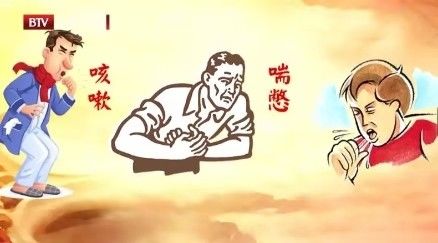
3 hidden “killers”: pneumonia
Pneumonia is more common in frail older adults and can be very dangerous. According to statistics, pneumonia in the elderly can account for 50% of the final death of the elderly, and it is even called “the last straw that overwhelms the elderly”.
But a pneumonic cough is very insidious, and even a mild cough can be dangerous.
【Symptom Tips】If you have symptoms such as drinking water, choking, drooling, fever but not obvious, no cough but a lot of yellow sticky phlegm, etc., you should be alert to pneumonia.
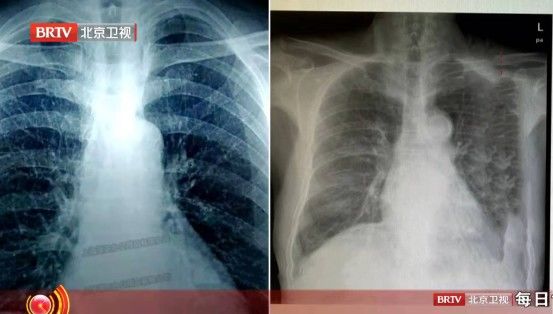
4 silent “invisible killers”: COPD
COPD is a chronic airway inflammatory disease caused by structural changes such as airway stenosis or emphysema, leading to obstruction of respiratory airflow. Its prevalence, disability rate, and case fatality rate are all high. According to statistics, by 2018, the number of COPD in my country is estimated to be close to 100 million, and it has become the third leading cause of death among Chinese residents.
[Symptom characteristics] The early symptoms are insidious and can be manifested as cough, white and sticky phlegm, chest tightness, and shortness of breath after exercise. If these symptoms occur repeatedly, it is recommended to seek medical attention in time for a lung function test.
【Risk group】Age more than 40 years old, frequent smokers, people who have been in heavily polluted areas for a long time, and those who are often exposed to harmful gases.
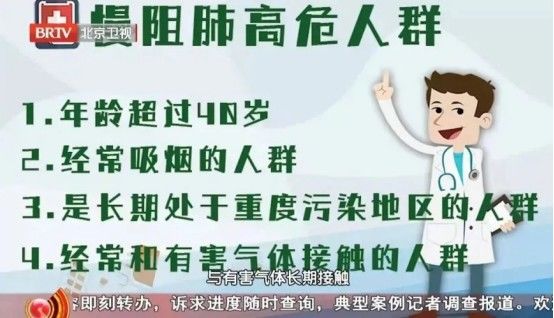
5 dangerous “culprits”: lung cancer
Lung cancer ranks first in terms of morbidity and mortality for many years in a row. Many people are diagnosed with lung cancer in the middle and late stages, but coughing is likely to be an early sign of lung cancer.
[Symptom characteristics] Most patients with early stage lung cancer will have a dry cough, especially some old smokers. When encountering cold air, pungent odor, etc., it will cause paroxysmal dry cough, and sometimes the cough is more intense , it is difficult to return to normal temporarily. And cough medicine can not relieve, with the development of the disease, the cough will gradually worsen, or even sudden hemoptysis or blood in the sputum.
【Risk group】Age ≥40 years old, and any of the following, belong to the high-risk group of lung cancer, it is recommended to do low-dose spiral CT once a year.
◎Smoking ≥20 pack-years, or ever smoking ≥20 pack-years and quitting <15 years (for 20 consecutive years, smoking 1 pack per day on average, the smoking index is 20 pack-years);
◎Have a history of exposure to environmental or high-risk occupational factors (including those exposed to asbestos, beryllium, uranium, radon, etc.).
◎ Patients with chronic obstructive pulmonary disease, diffuse pulmonary fibrosis, and a history of pulmonary tuberculosis.
◎ Those who have previously suffered from malignant tumors or have a family history of lung cancer.
◎Passive smokers, including second-hand smoke, kitchen fumes, etc.

In addition, chronic bronchitis, tuberculosis, etc. may also cause cough, so if the symptoms do not relieve for a long time, it is best to seek medical attention in time to find out the cause.
To protect the respiratory system, 2 daily tricks can be used
①Keep the respiratory tract moist and enhance resistance
In a relatively humid environment, the respiratory mucosa is more conducive to resisting viral and bacterial infections, and is also conducive to the normal functioning of the mucous membrane epithelial expectoration mechanism, and timely expelling pathogenic microorganisms, various inflammatory cells, and necrotic mucosa from the body. Epithelial CellsWait.
In daily life, it is necessary to ensure the drinking amount of 1500~1700ml, and you can drink some beverages with a moisturizing effect such as Tremella soup; when the climate is dry, you can use a humidifier to control the indoor humidity at about 50%~60%, but pay attention to the use of Purified water and cleaned regularly.

②Two small movements to help improve lung function
◎ Chest expansion exercise: Raise your arms forward, palms down, inhale when you open your arms out, and exhale when you retract them. 2 sets each time, 25 reps each. This move can help improve the strength of the chest muscles, expand the chest cavity, and increase the depth of breathing.
◎Pinch your lips and hold your breath and take a deep breath: Inhale through your nose for 5 seconds, hold your breath for 5 seconds, purse your mouth, and exhale slowly like a whistle. 10 minutes a day.

2
Cough with these symptoms
It may be that the heart is underpowered
Case
A mother-in-law in her 60s has a constant cough, which is worse when she sleeps at night, and sometimes feels chest tightness and breathlessness in the middle of the night, which can be relieved by sitting up. I thought it was a lung problem, but it turned out to be heart failure.
1 Heart failure causes pulmonary edema, causing cough
Blood flows throughout the body through the lungs, where air is exchanged in the alveoli. However, when heart failure occurs, the pumping function of the heart is impaired, and the blood in the pulmonary veins cannot return to the heart smoothly, and some red blood cells may be “driven” into the alveoli, and even pulmonary edema may occur. The lungs are now flooded with water, which in turn can cause a cough with pink, foamy phlegm.
There is also a distinct feature of cough caused by heart failure – worsening cough at night, especially when lying down. Because in the supine state, the blood flow back to the heart from the lower limbs increases, and the heart load increases.
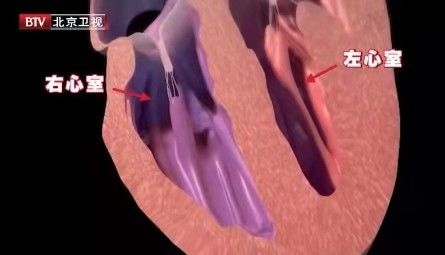
2 Stay away from risk factors and keep your heart motivated
Any disease that can harm the heart muscle, such as myocardial infarction, coronary heart disease, hypertension, cardiomyopathy, inflammation, etc., may cause changes in the structure and function of the heart muscle, and finally lead to heart failure.
In addition, colds, colds, lung infections, emotional agitation, etc. are all incentives for aggravating heart failure, and should be avoided at ordinary times.
【Zhutu Decoction Helps Regulate Heart Failure】
[Recipe] Atractylodes, Shudi, Zhigancao, Ginseng, Astragalus, Gansong, Poria, Zelan, Guizhi, Alisma are boiled into decoction.
[Efficacy] Atractylodes Rhizoma is mainly for wind, cold and dampness, and tonifies the spleen. Refreshing the spleen; Poria, Zelan, Guizhi, Alisma Tongyang and diuresis, together can assist in the treatment of heart failure. Please follow the doctor’s advice for specific usage and dosage.
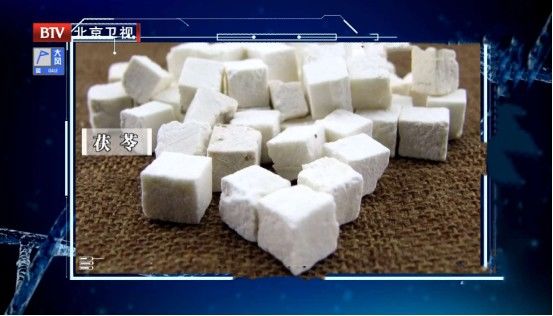
3
The “most unexpected” cause of coughing
Gastroesophageal reflux
Do you think gastroesophageal reflux can only cause acid reflux and heartburn? In fact, cough may also be one of its symptoms.
1 Gastroesophageal reflux, why does it cause cough?
The cough caused by gastroesophageal reflux is mainly manifested as coughing during sleep at night. This is because the patient has the problem of relaxation of the cardia sphincter, and the stomach contents are more likely to reflux when lying down. It can easily lead to respiratory spasm and cough.

Two tricks to help prevent gastroesophageal reflux
①Control weight
Excessive fat will squeeze the esophagus, causing the sphincter at the lower end of the esophagus to relax, and the cardia will not close tightly, causing reflux. A large Norwegian study published in the “American Journal of Gastroenterology” showed that for every 1 point increase in body mass index, the risk of gastroesophageal reflux increased by 30%.
Therefore, overweight people should actively lose weight and control their body mass index within 18.5~24.99 (body mass index = weight kg/height square m2).

②Don’t rush to lie down after a meal, sleep with the head of the bed raised
It is recommended to have 30 minutes of activity after a meal, such as washing dishes or taking a walk. Try not to bend over as much as possible to avoid compressing the stomach and causing reflux, and do not lie down and sleep within 2 hours after a meal.
In addition, the head of the bed can be raised by 15-20 cm to help reduce gastroesophageal reflux.

③Huoxiang Suzi Soup
[Recipe] Take 6 grams of Huoxiang and 12 grams of Suzi, crush into powder, add 200~300ml of boiling water to brew.
[Efficacy] Huoxiang can aromatize dampness, calm the stomach and stop vomiting, and can well relieve loss of appetite; Suzi can relieve gas and stomach, inhibit bacteria and reduce inflammation. The combination of the two can increase the gastrointestinal motility and promote the rapid digestion of food.And reduce the possibility of gastroesophageal reflux.
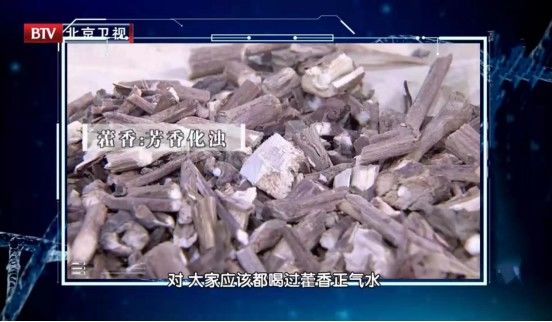
In general, there are many reasons for coughing, and you cannot blindly treat it yourself. If the cough does not relieve for a long time, it is recommended to seek medical attention in time.
(I am the official WeChat account of a big doctor)